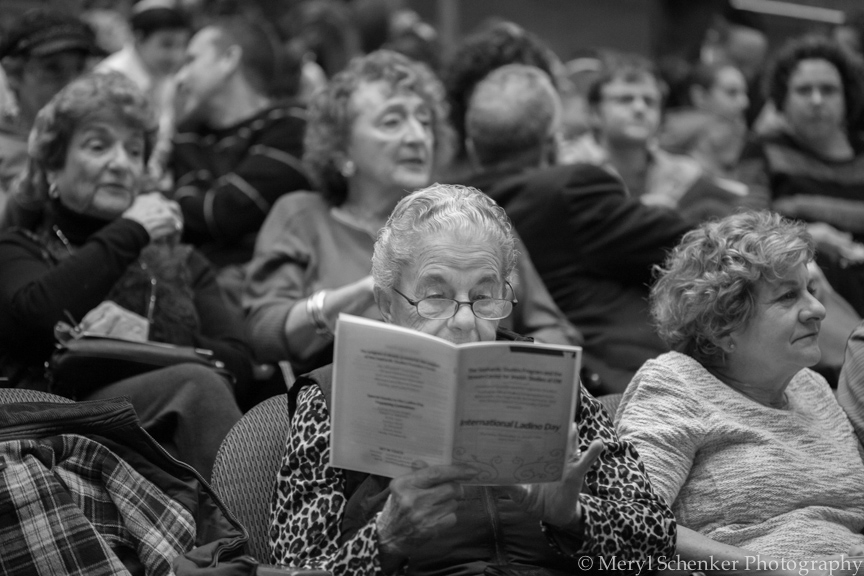
Fans of Ladino await the start to the 2014 International Ladino Day Celebration.
By Molly FitzMorris
In sociolinguistics, where we study the relationship between language and society, the notion of speech community is key. Though definitions of this concept are debated, the speech community is essentially the group of people speaking the language we want to study, the people with whom we interact in order to conduct our research. Over the past two years, I have been fortunate enough to talk to dozens of Ladino speakers in Seattle, who have taught me far more about the language than I ever could have learned from a book.
Feeling welcomed into this community of speakers, I never doubted that I was studying a speech community. I recently read an article, however, in which the author states that because Ladino speakers are dispersed around the world, “the speech community is long lost, and the death of the language seems inevitable.” Disheartened by this diagnosis, I wondered if I had been mistaken in using the term speech community to describe our local Ladino speakers for the past couple of years, so I set out to define, or possibly re-define, the Seattle Ladino speech community.
Ladino, or Judeo-Spanish, is the language that developed when tens of thousands of Jews fled Spain for the Ottoman Empire because of the Alhambra Decree of 1492. The language is very similar to modern Spanish, but it contains elements “borrowed” from Turkish, Hebrew, Arabic, French, Greek, and other languages, tangible linguistic evidence of contact between Sephardic Jews and these other cultures. Today, there are communities of Ladino speakers scattered around Europe, the Middle East, and North and South America, but the language does not have official status in any country in the world.
Furthermore, it is all but certain that there are no more monolingual Ladino speakers, meaning there is no one in the world who speaks Ladino and only Ladino. For these reasons, and in large part because of the economic and social power of mega-languages like English and Spanish, Ladino is highly endangered in the present day.
Here in Seattle, however, there are some fascinating things happening with Ladino, particularly the conversation class that meets weekly, a group that has acquired the nickname Los Ladineros. Also quite interesting is the fact that there two dialects of Ladino in Seattle. Those of you who grew up speaking or hearing Ladino at home are surely aware of the debate of the o’s and the u’s, or the pronunciation difference between the speakers whose families came from Rhodes and those whose families came from Constantinople, Marmara, Izmir, and other cities in present-day Turkey. (For example, for the name of the language, speakers of the Turkish dialect would say Ladino, while speakers of the Rhodes dialect might say Ladinu.)
Granted, the language shift, or the process of English replacing Ladino as the everyday language of Seattle’s Sephardim, has caused the two dialects to assimilate toward each other a bit over the past century, but some distinctions do remain. Ask a speaker of the Turkish dialect how to say ‘now’ in Ladino and he or she is likely to tell you agora, but if you ask a speaker of the Rhodes dialect, it’s very possible he or she will say auera. These remaining distinctions are important because they can help us to better understand how Ladino evolved not only in different parts of the Ottoman Empire, but also in 20th-century Seattle.
Since the language is endangered and there are still two dialect patterns being used in Seattle, is it appropriate, then, to refer to a Seattle Ladino speech community? There is no doubt that Ladino is no longer the dominant language of the Sephardic Jews of Seattle – those speakers that still use the language only do so in certain places and with certain people. Using the previously mentioned strict definition of speech community, then, I would be forced to agree that the Seattle Ladino speech community is dead.
If the speech community is dead, though, then what is it that I am studying? Professor Ruth Behar, who visited the UW in mid-May to deliver this year’s Stroum Lectures about her anthropological work regarding Sephardic identity, called Seattle’s Sephardic community one of the largest in the world. Professor Behar was also quick to point out that Seattle’s community is exceptionally cohesive, an idea that I have heard repeatedly from scholars and community members alike in Seattle, Buenos Aires, and other parts of the world. There is something special about Seattle. In their book Contemporary Sephardic Identity in the Americas, Margalit Bejarano and Edna Aizenberg say that Seattle’s Sephardic community is “the exception that proves the rule,” and that this community’s “experience was exceptional in the immigrant story of Sephardim from the Balkans.”
I believe, however, that Seattle is not just a cultural exception, but a linguistic exception as well. I think this exceptional cohesion extends to the language, and has helped to keep Ladino alive for the past century.
I propose that, while Ladino is no longer the primary language of Seattle’s Sephardic Jews, we nonetheless have a Ladino speech community here. Professor Ronald Wardhaugh, formerly of the University of Toronto, suggests a loose and inclusive definition of speech community that I find much more applicable to Seattle Ladino, calling it “some kind of social group whose speech characteristics are of interest and can be described in a coherent manner.” There is no doubt that we have such a community here in Seattle – a dynamic group of people who identify as speakers of a unique and interesting language. This language is kept alive not because of research at the University of Washington, but because of the enthusiasm of the speakers themselves.
Take our International Ladino Day celebrations, for example: The first year, we expected 75 attendees, but got 300; last year, we got 400. Go to any Stroum Center event and you’re bound to meet Ladino speakers who are happy to share their stories. It appears that the community has helped to maintain the language and the language has helped to unite the community. It seems that Ladino continues to exist in Seattle precisely because there is a Seattle Ladino speech community.
 Molly FitzMorris was the I. Mervin and Georgiana Gorasht Scholar for 2014-15. She is a second-year PhD student in the Department of Linguistics. She completed her MA thesis, “The Last Generation of Native Ladino Speakers? Judeo-Spanish and the Sephardic Community in Seattle,” at the University of Washington in the spring of 2014, and she is continuing to focus on Seattle Ladino for her doctoral research. Molly helped to organize the first and second International Ladino Day celebrations in Seattle. For her Jewish Studies Graduate Fellowship project, she expanded her work with the Ladineros, the members of a unique Ladino conversation class in Seattle, and studied the Ladino of Buenos Aires, Argentina, in order to gain a better understanding of the state of the language today.
Molly FitzMorris was the I. Mervin and Georgiana Gorasht Scholar for 2014-15. She is a second-year PhD student in the Department of Linguistics. She completed her MA thesis, “The Last Generation of Native Ladino Speakers? Judeo-Spanish and the Sephardic Community in Seattle,” at the University of Washington in the spring of 2014, and she is continuing to focus on Seattle Ladino for her doctoral research. Molly helped to organize the first and second International Ladino Day celebrations in Seattle. For her Jewish Studies Graduate Fellowship project, she expanded her work with the Ladineros, the members of a unique Ladino conversation class in Seattle, and studied the Ladino of Buenos Aires, Argentina, in order to gain a better understanding of the state of the language today.

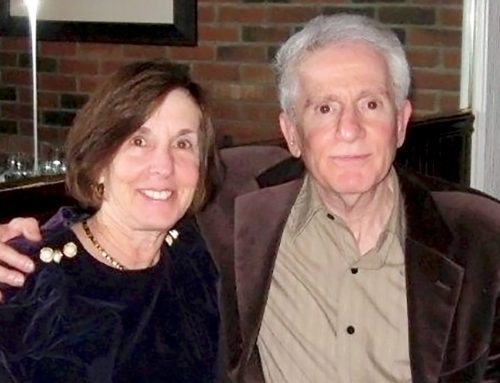
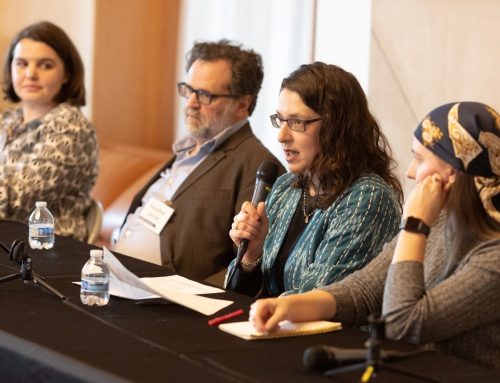
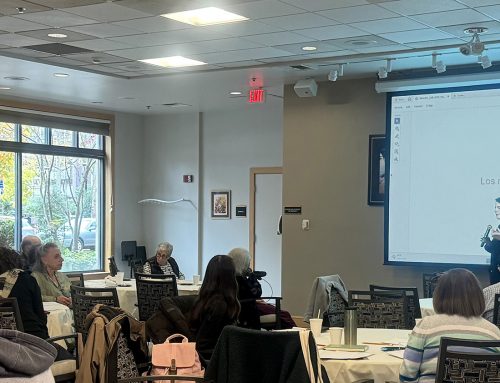
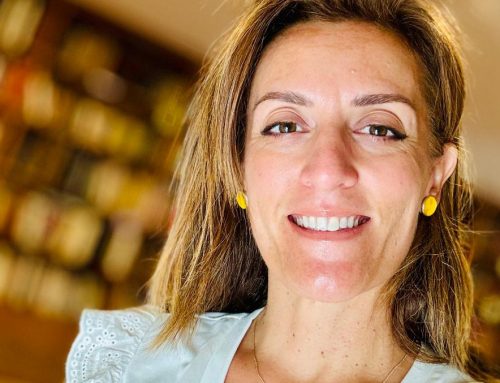

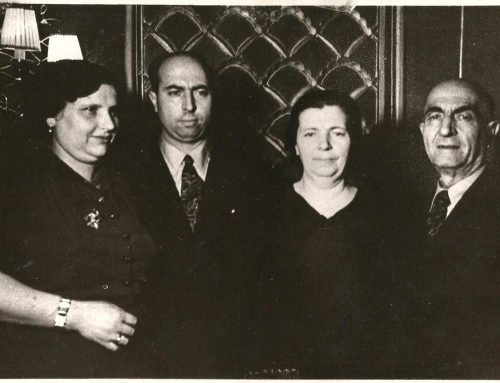
I would love to see a list of some linguistic differences between the Turkish and Rhodeslie Sephardi while I still can remember the sounds in my head from my grandparents and father. Thank you. (please email me a link if there is something available online. THANK YOU.
Hi Lori, do you live in Seattle? I’d love to grab coffee sometime and talk about your experiences and share what I know.
How did you come by this desire to learn about ladino? I so admire your quest.
I am the daughter of immigrants from Rhodes, grew up in a Sephardic community in Brooklyn, NY. My parents spoke to me in Ladino. I stubbornly responded in English. I must admit that I was embarrassed by their accents and their inability to communicate in English. While my friends were Sephardic, their parents were first generation, like me. The only thing we had in common were the foods we ate, with some variations.
Now in my retirement years, after a long career, raising my family, I’m yearning for the sounds of my youth, trying to remember things past. Getting to the point, I’d love to study ladino. Would you have any access to the possibilities?
Hi Alice, I started studying Ladino while working on my master’s degree in Hispanic Studies. I met a group of speakers here in Seattle and fell in love immediately, and many of these speakers have told me about similar experiences, hearing Ladino at home but responding in English. Are you still in New York? I’m not sure about classes there, but I know of some opportunities to learn and practice Ladino in Seattle.